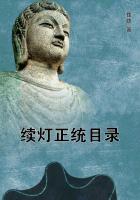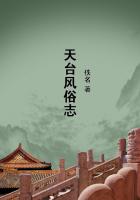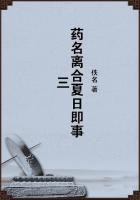In the conclave that followed the death of Innocent X., Cardinal Chigi, who had been nuncio at Cologne, envoy-extraordinary of the Holy See during the negotiations that ended in the Peace of Westphalia, and afterwards Secretary of State, was elected, and took the title of Alexander VII.[1] (1655-67). At first the people were rejoiced because the new Pope had shown himself so determined an opponent of that nepotism, which had dimmed the glory of so many of his predecessors, but at the request of the foreign ambassadors and with the approval of the cardinals he changed his policy after some time, brought some of his relatives to Rome, and allowed them too much influence. His election had been opposed by Cardinal Mazarin in the name of France, and throughout his reign he was doomed to suffer severely from the unfriendly and high-handed action of Louis XIV., who despatched an army to the Papal States to revenge an insult to his ambassador, the Duc de Crequi, and forced the Pope to sign the disgraceful Peace of Pisa (1664). Alexander VII. condemned the Jansenistic distinction between law and fact by the Bull, /Ad Sanctam Petri Sedem/ (1665), to enforce which he drew up a formulary of faith to be signed by the French clergy and religious. He observed an attitude of neutrality in the disputes between Spain and Portugal, secured the return of the Jesuits to Venice, and welcomed to Rome Queen Christina of Sweden, who abandoned Lutheranism to return to the Catholic Church.
His successor, Cardinal Rospigliosi, formerly nuncio at Madrid and Secretary of State was proclaimed Pope as Clement IX. (1667-69). He was deeply religious, generous in his donations to the poor and to hospitals, and uninfluenced by any undue attachment to his relations.
He put an end to the religious disorders that had reigned in Portugal since 1648, when that country seceded from Spain to which it had been united since 1580, and proclaimed the Duke of Braganza king under the title of John IV. Matters had reached such a crisis that many of the bishoprics in Portugal and the Portuguese colonies were left vacant.
In 1668 after the conclusion of the Peace of Lisbon the Pope appointed those who had been nominated to the vacant Sees. Deceived by the false representations made to him from France, he restored the French bishops who had adhered publicly to the distinction between law and fact. He offered generous assistance to Venice more especially in its defence of Crete against the Turks. During his reign he canonised Mary Magdalen de Pazzi, and Peter of Alcantara.
On the death of Clement IX. the cardinals could not at first agree upon any candidate, but finally as a compromise they elected, much against his own will, Cardinal Altieri, then an old man eighty years of age.[2] He was proclaimed as Clement X. (1670-76). Unable to transact much business himself he left too much in the hands of others, especially to Cardinal Paoluzzi. He encouraged and assisted the Poles in their struggles against the Turks, and resisted the demands of Louis XIV. concerning the /Regalia/. He canonised John Cajetan, Philip Benitius, Francis Borgia, Louis Bertrand, and Rose of Lima.
In the conclave that followed the demise of Clement X. Cardinal Odescalchi, against whom France had exercised the veto on a previous occasion, was elected and took the name of Innocent XI.[3] (1676-1689). He was zealous for religion, charitable to the poor, economic and prudent in the administration of the Papal States, anxious for an improvement in clerical education, and a strong opponent of everything that savoured of nepotism. His whole reign was troubled by the insolent and overbearing demands of Louis XIV. in regard to the /Regalia/, the right of asylum, and the Declaration of the French Clergy (1682), but Innocent XI. maintained a firm attitude in spite of the threats of the king and the culpable weakness of the French bishops. He encouraged John Sobieski, King of Poland, to take up arms against the Turks who had laid siege to Vienna, and contributed generously to help Hungary to withstand these invaders.
After the short and by no means glorious reign of Alexander VIII.
(Cardinal Ottoboni, 1689-91), the cardinals were divided into two parties, the French and the Spanish-Austrian. When the conclave had continued five months without any result they agreed finally to elect a compromise candidate (Cardinal Pignatelli) who took the name of Innocent XII. (1691-1700). In every respect he showed himself worthy of his holy office. Nepotism was condemned in the Bull /Romanum Decet Pontificum/, better arrangements were made for the administration of justice throughout the Papal States; the disputes with Louis XIV.
regarding the Declaration of the French Clergy were settled when the bishops who signed these articles expressed their regret for their conduct (1693); and several propositions taken from the /Maximes/ of Fenelon were condemned. The Pope was involved in a serious dispute with the Emperor Leopold I. concerning the right of asylum attached to the imperial embassy in Rome, and the aggressive policy of Martinitz, the imperial ambassador. As a result of this quarrel the Pope, without consulting Charles II. of Spain who had no heirs, favoured the pretensions of Philip Duke of Anjou (Philip V.) to the throne of Spain in preference to the Emperor's son the Archduke Charles.
In the conclave that assembled after the death of Innocent XII. the majority of the cardinals favoured Cardinal Mariscotti, but, as his election was vetoed by France, they concentrated their votes on Cardinal Albani. For three days he refused to accept the onerous office, but at last he gave way to the earnest entreaties of the cardinals, and allowed himself to be proclaimed as Clement XI.[4]















